The EU Model
The EU Model is a simulation role-playing training conference where the work of the European institutions is simulated. Conference participants act as delegates of the member countries of the integration association, journalists, lobby members and based on the adopted rules and procedures for functioning of the European authorities make political decisions relevant to modern Europe. During this process participants gain experience in negotiating and maintaining their own positions, develop skills in public speaking and paperwork, get acquainted with modern problems of international development and building integration.
In the framework of the EU model the work of the European Parliament was organized.
Toolkit how to organized EU Model (European Parliament)
The toolkit was prepared by the professors of the Chair of Theory and History of International Relations. It is aimed to school teachers and anyone who is interested in organising EU Model role game (European Parliament).
Rules and procedures for the European Parliament
Commissioned by The European Parliament Information Office.
Groups of the European Parliament and their program settings
The EU Model
September 29th – October 1st, 2021
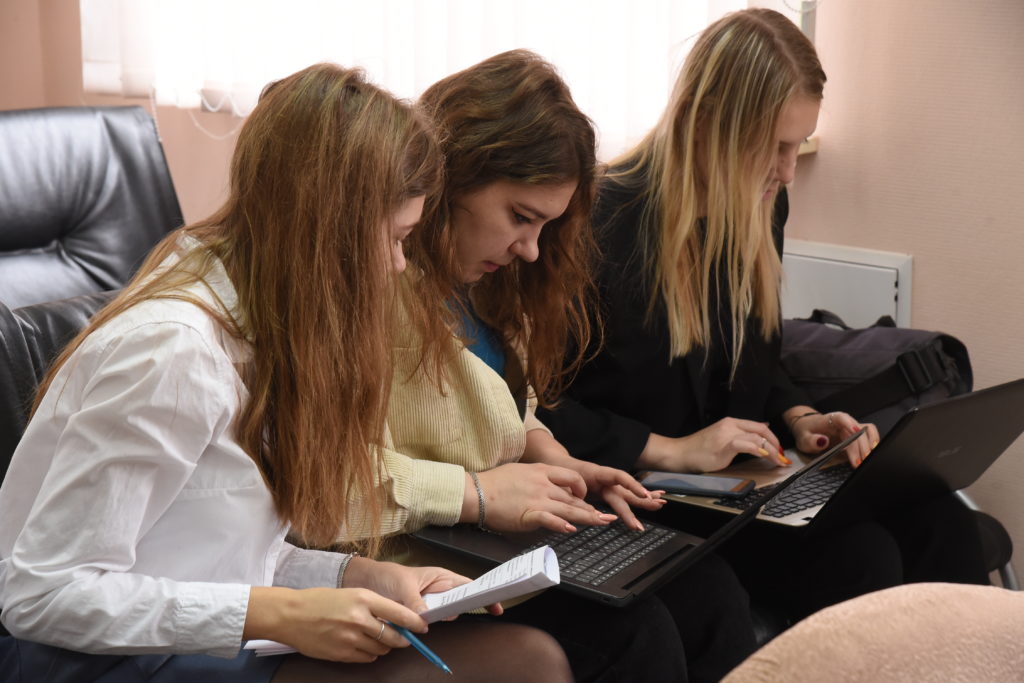
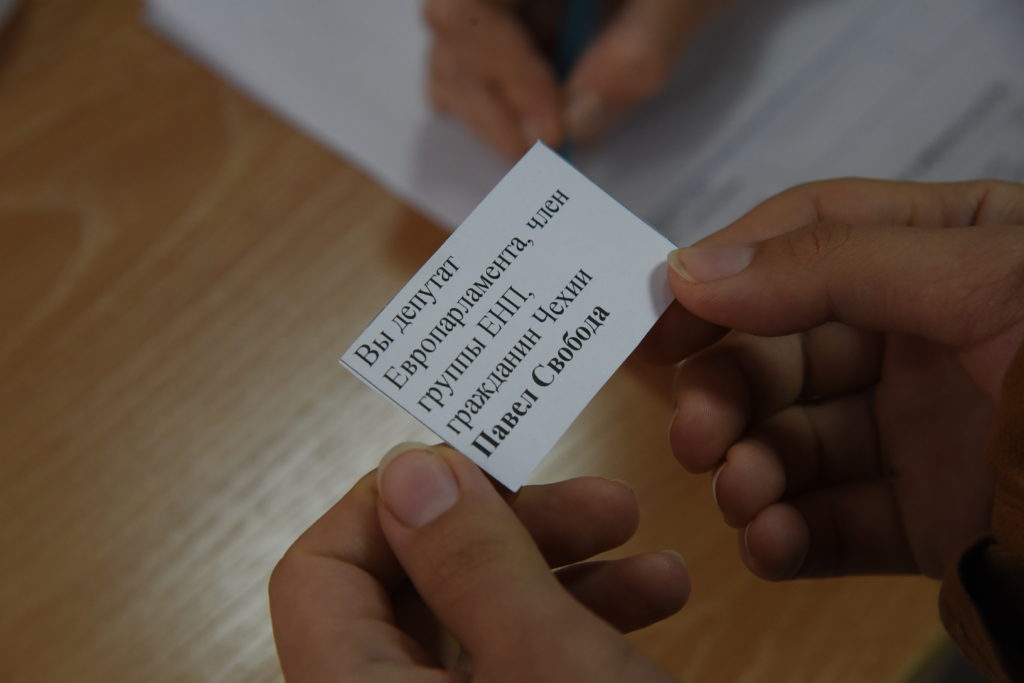
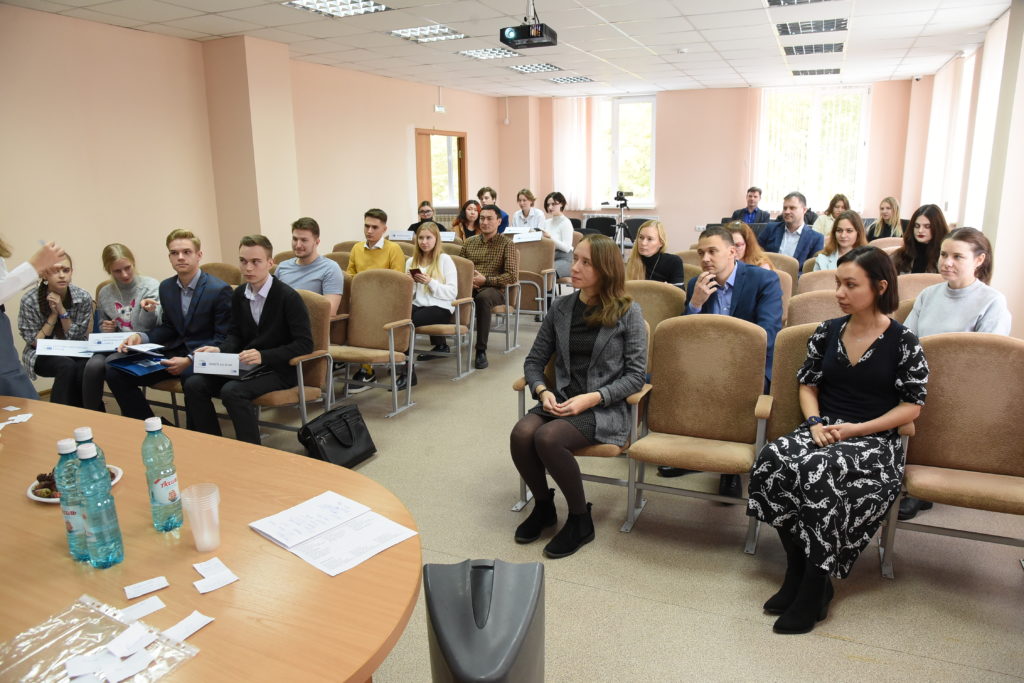
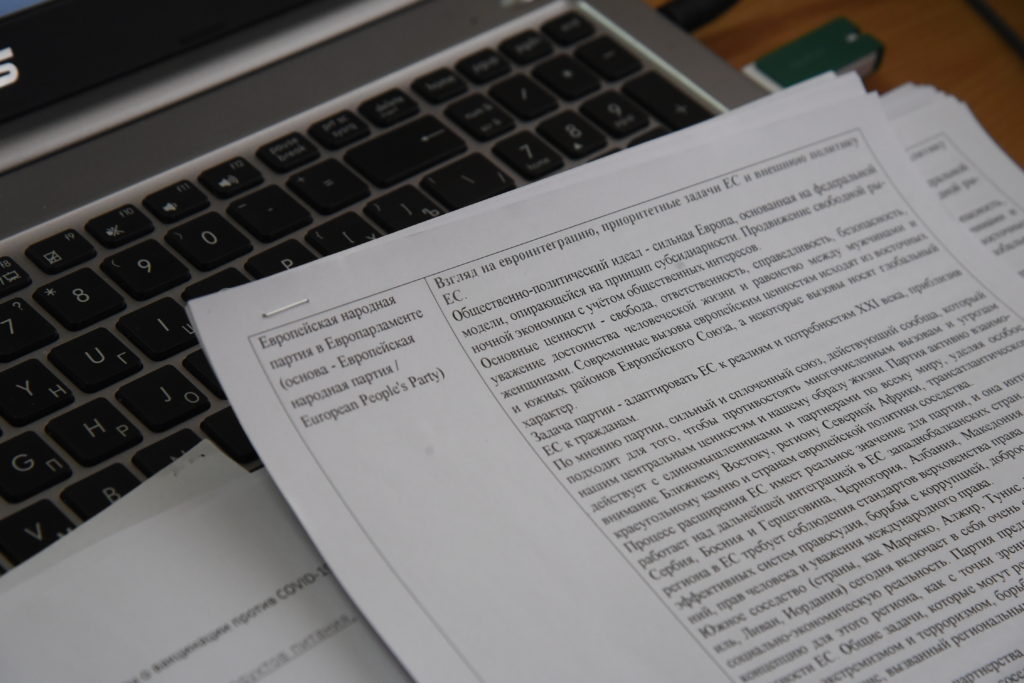
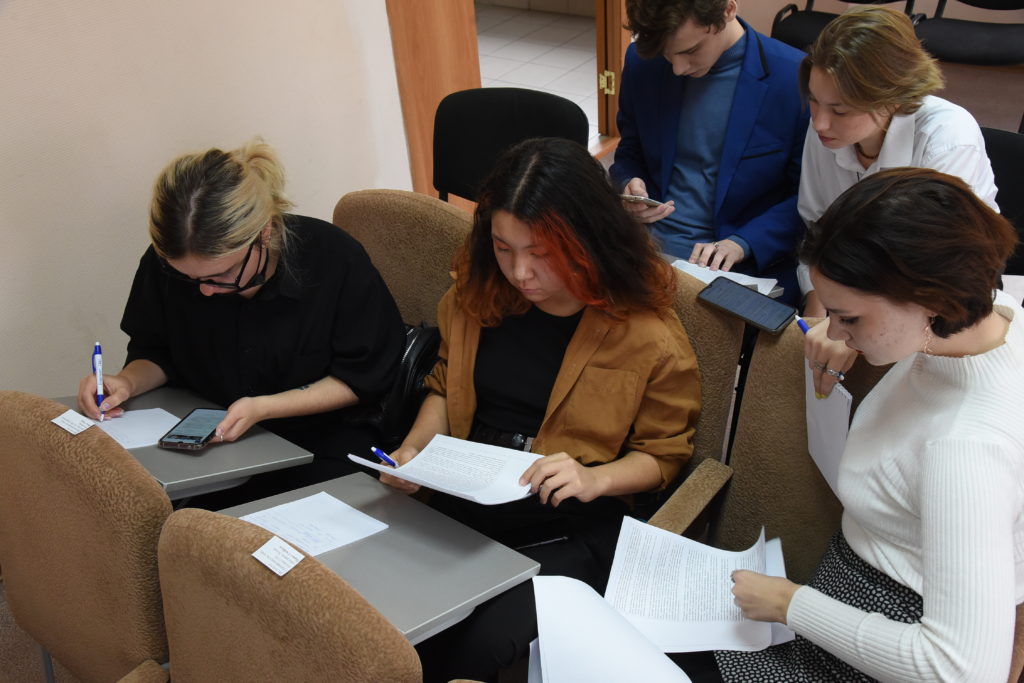
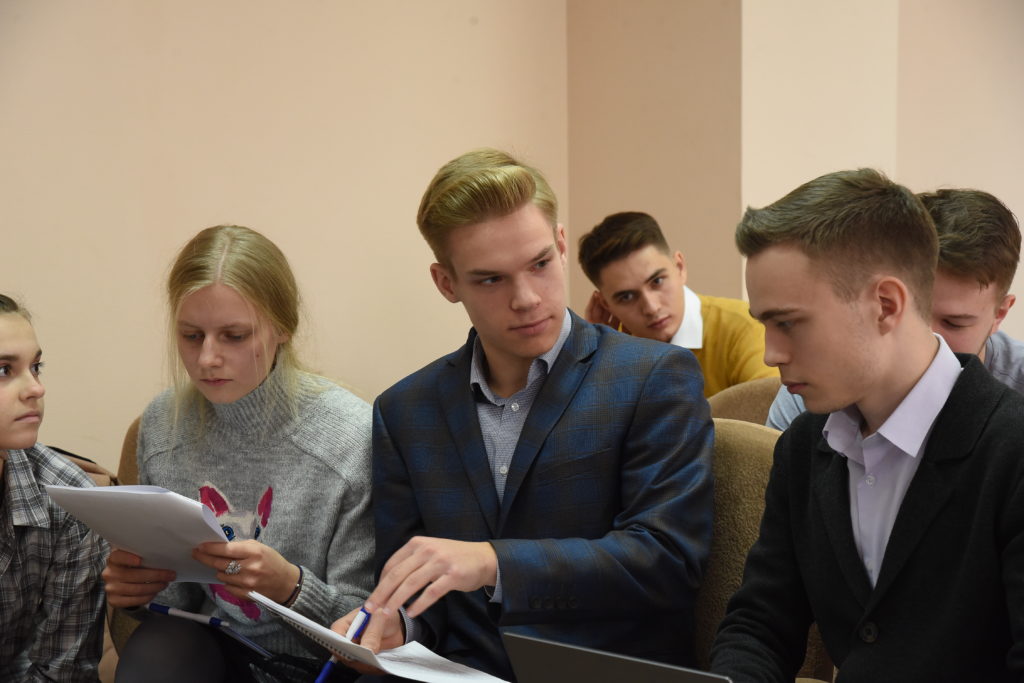
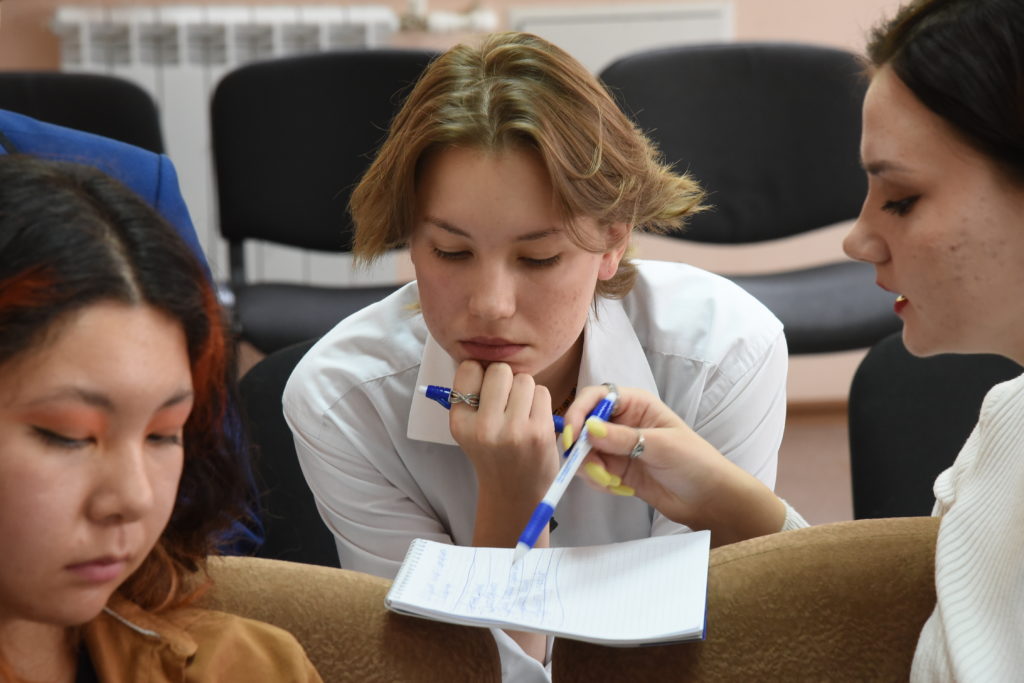
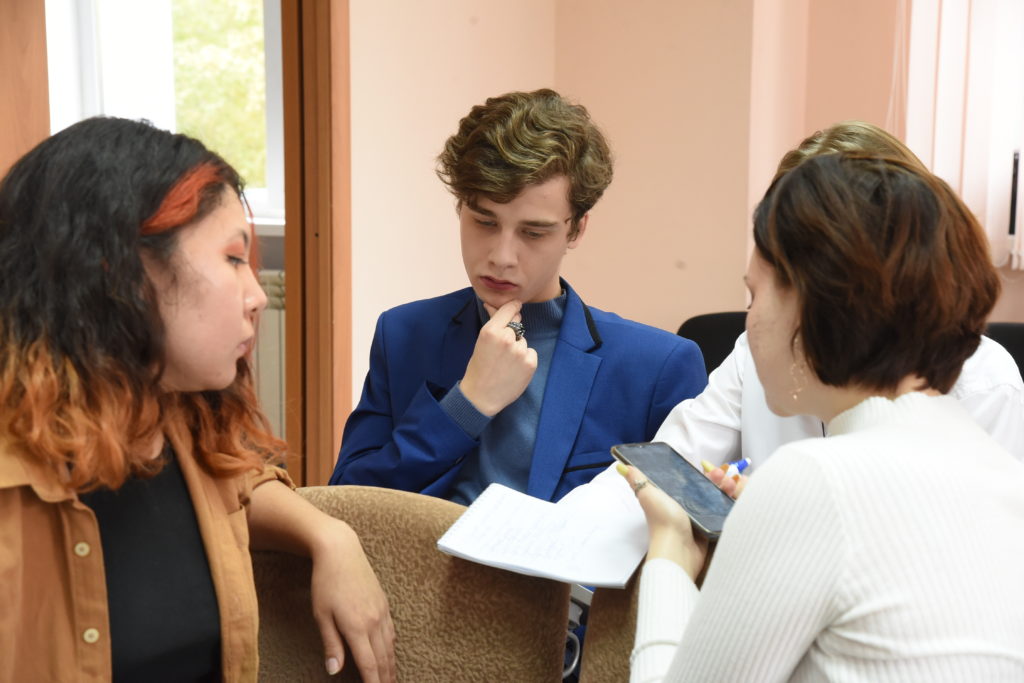
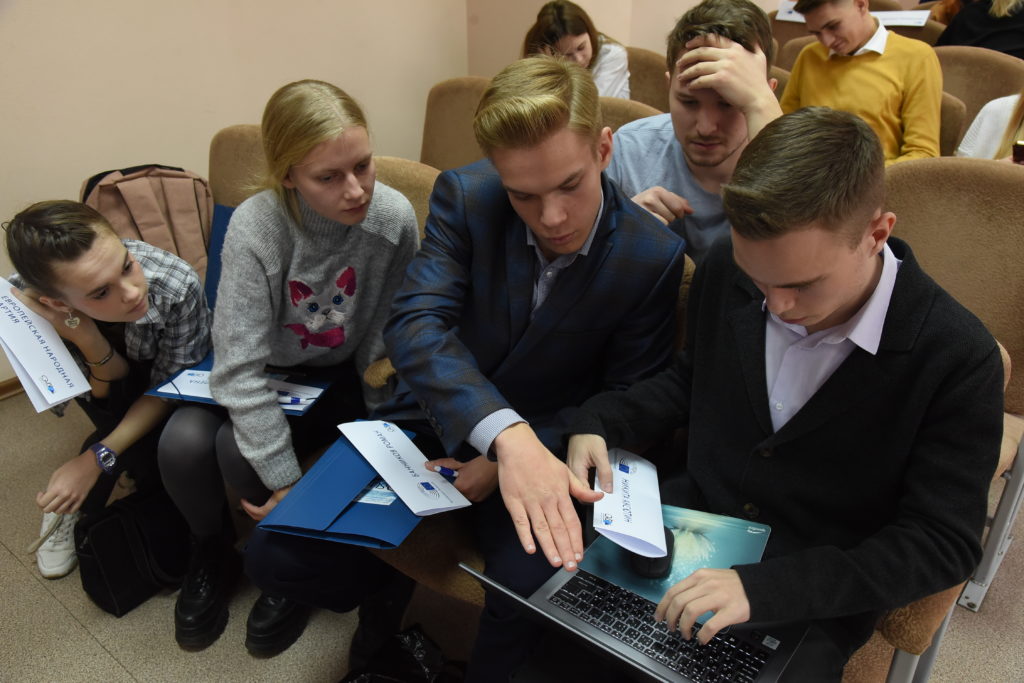
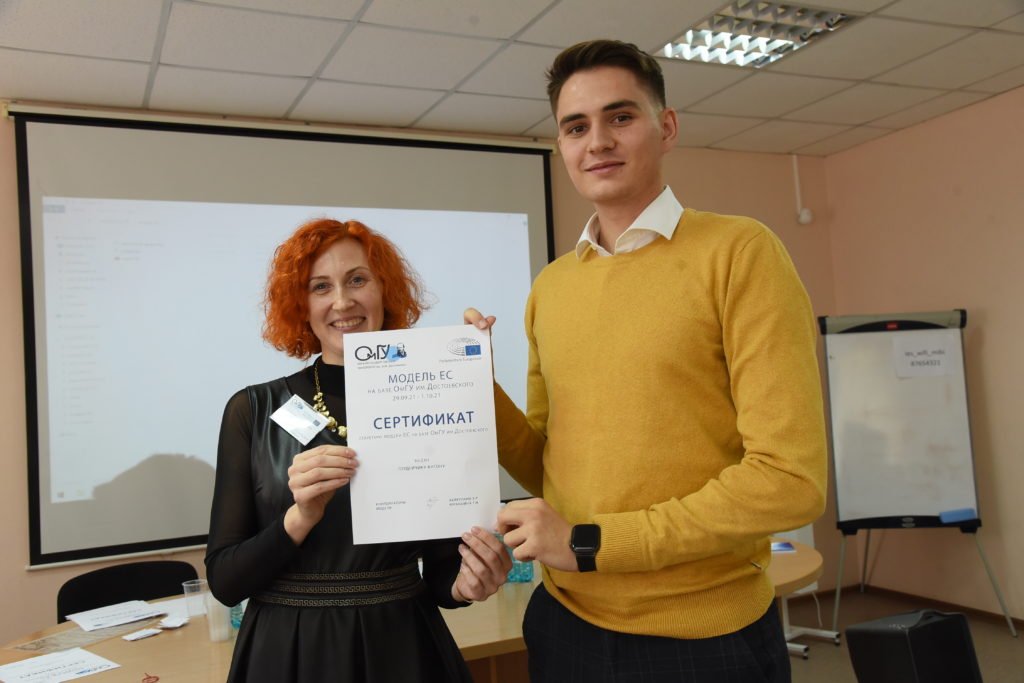
Agenda of the European Parliament session
(September 29th – October 1st, 2021):
- The European Commission proposes to recognize passports/certificates of vaccination against COVID-19 with vaccines registered with the World Health Organization
Committees:
- Committee on Environment, Public Health and Food Safety (ENVI)
- Committee on Foreign Affairs (AFET)
- To move towards a green economy, the European Commission proposes to refuse from the production and operation of combustion engines by 2030.
Committees:
- Committee on Development (DEVE)
- Committee on Environment, Public Health and Food Safety (ENVI)
- Due to the crisis emerged in Afghanistan and neighboring states, the European Commission proposes to host refugees in member states in the framework of a quota system.
Committees:
- Committee on Foreign Affairs (AFET)
- Subcommittee on Human Rights (DROI)
The participants of the EU Model were the schoolchildren of Gymnasium No. 19 (Omsk), students of 3d and 4th years of study of Dostoevsky Omsk State University majoring in “International Relations” and “Linguistics” as well as expert-speakers at the international scientific and practical conference.
Reviews from the participants
Anna Zabelina
“I liked the model. I made friends with the students of different years of study and also gained new experience that is very important for me as a student of the International Relations program. I hope that next year this event will be held in such a format and it will be successful”.
Anastasia Markelova
“I participated in the work of the EU Model organized by ITMO department. I was involved in a really useful and interesting game that any student from the International Relations program absolutely needs. During the game in your team you use brainstorming to determine positions and draft resolutions, and get the opportunity to improve your public speaking skills”.
Olga Zhilnikova
“I liked to participate in the EU Model. First, it allowed me to learn new information. Secondly, it allowed me to use and apply new and already existing knowledge during the game. Thirdly, it allowed me to develop personal qualities (teamwork, public speaking) and professional (the ability to draw up a position, prepare documents, the ability to listen to an opponent). I enjoyed participating in the EU Model”.
Nikita Aksyutin
“The EU model was organized very competently and at a high level. We were provided with all the conditions for our work that made it possible to constructively express our points of view as well as to answer questions from colleagues of the EU Model. Great job!”.
